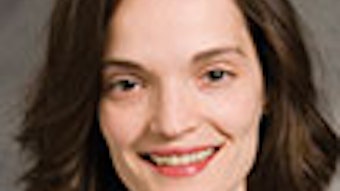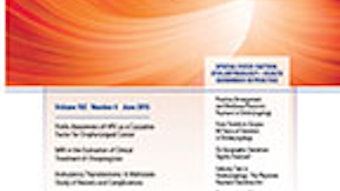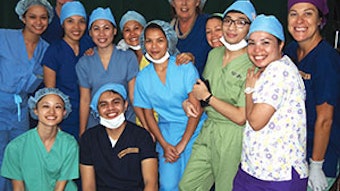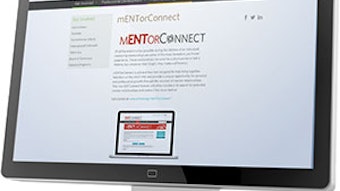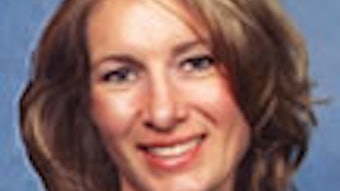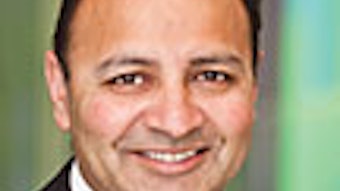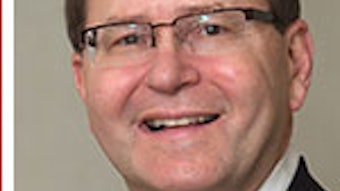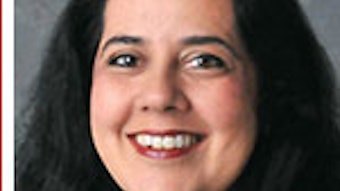Thoughts on the June 2015 health policy course at the Heller SchoolExpanded from the print edition
When I applied for the AAO-HNS/ACS Scholarship to attend the Health Policy and Leadership Course at the Heller School, I knew that I had ascended to a high level of leadership in medicine but that I needed more intense and detailed education on various aspects of U.S. healthcare policy, financial assessment, and leadership skills. I was grateful when I received the scholarship, but even more so once I attended the week-long course in June.
By Sujana S. Chandrasekhar, MD, President, American Academy of Otolaryngology–Head and Neck Surgery
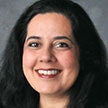 Sujana S. Chandrasekhar, MD
Sujana S. Chandrasekhar, MDWhen I applied for the AAO-HNS/ACS Scholarship to attend the Health Policy and Leadership Course at the Heller School, I knew that I had ascended to a high level of leadership in medicine but that I needed more intense and detailed education on various aspects of U.S. healthcare policy, financial assessment, and leadership skills. I was grateful when I received the scholarship, but even more so once I attended the week-long course in June.
A week is a really long time to take away from one’s practice and family, and that decision is made after a great deal of coordination at work and at home, and anticipating a significant return on that investment. I was not disappointed; the ROI from the Heller week was very high, indeed. In an intense learning atmosphere, the more than 25 surgeons who attended discussed changing roles and effective (and ineffective) styles in surgical leadership, methods for strategic decision making, the “physics” of managing clinics and healthcare, financial literacy, cost accounting, and value-based purchasing for programmatic success, and conflict negotiation. We heard from a high-level architect of several national healthcare systems over the past 40 years, who gave us a sense of the continuum in healthcare and healthcare policy negotiations. Change is very difficult for many physicians; the skills discussed during that week were geared to the attendees’ understanding of the current and anticipated changes and then how to lead our colleagues to meet those changes. In addition to extraordinarily well-regarded speakers, we had the advantage of spending the week with so many physician-leader students. Similarly to how you advance in sports by playing with advanced players, the second and very important advantage of this week was spending it learning, eating, and chatting with my fellow students, from whom I learned a great deal as well.
I have a significant weakness in understanding finances beyond the most superficial level. Or I did, until this course. If you can imagine it, this course took Accounting 101 and Graduate School Accounting and mashed them into nine-and-a-half hours. And kept someone like me, who would previously have described herself as “allergic” to math and finances, completely engaged! This is an area where even the math brains among us surgical leaders can get misdirected. The terminology and the “how to” of dissecting balance sheets, doing cost accounting and determining value-based purchasing strategies, delivered didactically and in case-based and interactive formats, really became clear. I was actually thrilled to do some of the extra projects on my own, and was able to communicate much more effectively with administrators (and my MBA husband) when I got home.
It is common knowledge that physicians, in general, negotiate poorly for themselves, and that women, in particular, are worse negotiators than men when it comes to themselves, and are just a bit better when negotiating for others. I have taken several prior leadership courses—at AAO-HNS and at AAMC and elsewhere—where negotiation is identified as a necessary skill and reviewed, but never in the detailed and goal-oriented manner of this course. What did I learn and what do I use? Negotiation takes practice. Train hard; fight easy. Opportunities for negotiation can sneak up on you when you’re least prepared—if that happens, the other party has ambushed you. You need to recognize the situation, walk away, and pursue those negotiations with preparation. We talked about the one-off model of negotiation which is something you might use with someone you’ll never deal with again and where there is no repercussion for bad faith; most healthcare negotiations are inside ongoing relationships and, here, trust is paramount with each negotiation so that it can be maintained in the future. We also explored the details of preparing your team in negotiations so that you are all speaking with the same voice, for the greater good of the team in a “win-win more” tactic.
Once you’ve identified your interests, the issues at hand, and hammered out a good negotiation, the work is not done. Relational coordination (RC) is a concept that I had not understood sufficiently before learning it in detail at Heller, and it is such an important concept to keep in the forefront as one seeks to build successful clinical programs. We are all facing pressures to deliver better healthcare outcomes at lower cost, do more with less, and care for the sick while keeping them as healthy as possible and out of the hospital. Cooperation, communication, and coordination that are systematic and planned (“relational coordination”) can remove some of the individual frustrations when dealing with these pressures. RC matters the most the higher the task interdependence, the higher the uncertainty of the situation, and the greater the time constraints. By drawing out a relational map, the physician leader can identify where the energy for innovation is, and that is the momentum point for change. I have taken this information back to my life as I am planning inception of two large clinical programs and I had been unable to understand why the administrator was identifying roadblocks that I did not perceive as meaningful. I am mapping out relational maps for each of these programs, which will help me see what they see, and will help me help them overcome those barriers on our road to success.
Surgeons pride themselves on being strategic thinkers. We plan our cases, plan for unforeseen occurrences, and we are able to make snap decisions that bring years of knowledge and experience together instantaneously when they are needed. But real strategic thinking is much less about that gut instinct or intuition and much more about “slow” thinking—keeping a commitment to strategy rather than repeatedly changing course. This is very important in this era of changing practice paradigms, shared risk between hospitals and physicians, and hospital systems that grow larger by acquiring more hospitals/practices and therefore expecting their cultures to merge. Our class had the opportunity to really participate in building on the elements for making better decisions, and in acknowledging the strengths and weaknesses when working with groups. It is easy for physicians, who feel overwhelmed with time and budget pressures and fear of uncertainty, to throw up their hands, go along with some idea, and declare that they are just there to care for patients and not to participate in strategic decision making. That helps neither the physician, the healthcare system, nor the patient. I have been trying to convey the need for strategic thinking to various groups of otolaryngologists as I have given a number of talks on leadership since my week at Heller. It is a challenge to help smart, successful people see that there are other ways to think, but I have found that many more of them are receptive to this concept than one might surmise.
Of course, a course in 2015 regarding Healthcare Policy and Leadership would have been pointless without details about U.S. healthcare payments over the past several decades and upcoming changes in Medicare that will affect all of us. We cannot purport to be leaders in our fields without knowing this material cold. We had a day-and-a-half of intense education in U.S. healthcare policy. Learning the history absolutely helps us make sense of the present and the planned future. Details about upcoming bundled payments and shared risk models were made so clear that I have been able to turn around and explain these issues with clarity to other physicians just starting to understand what is going on. I really appreciated the fact that the speakers did not limit themselves to a single practice type, but talked about how bundling and alternative payment models can affect physicians in various practice settings. Additionally, we discussed different ways that physicians can choose to interact with the 14 different Medicare reimbursement systems. Just knowing this material affords the physician the power to engage in negotiations that result in “win-win more.”
Before we began this course, each of the surgeon attendees was already a leader—locally, regionally, and/or nationally. By the time we completed the course, we were super-leaders. Leadership is very interesting and very challenging. I was really glad that we took the time and effort to talk about leadership—challenges, styles, behaviors, models, successes, and failures. In particular, discussions were about leading different levels of groups, leading people who are both receptive and resistant to change, and keeping to time pressures for effective change. We broke out into groups in a very interesting leadership challenge and learned a great deal about ourselves—strengths and weaknesses —in the process. I reflect on these issues in particular a great deal when looking at my performance at work and at the AAO-HNS, when looking at others, when speaking to groups of physicians about leadership, and even when talking to my teenage children as they move along in life.
Our Heller group has stayed in close contact through the magic of the Internet. It is clear that I didn’t just get an education that I simply could not have managed if I had been trying to wedge it in in bits and pieces within the already congested fabric of my day to day life. I have also made wonderful, ongoing friendships with really smart, engaging, successful people who, like me, want to do their part to make things better in healthcare in the U.S.



